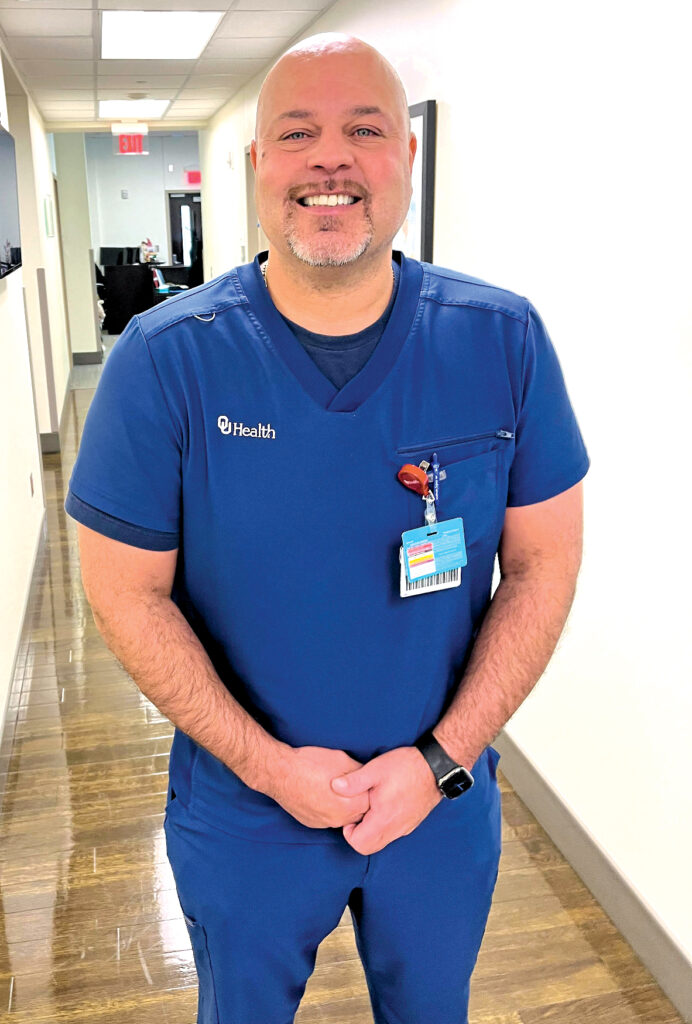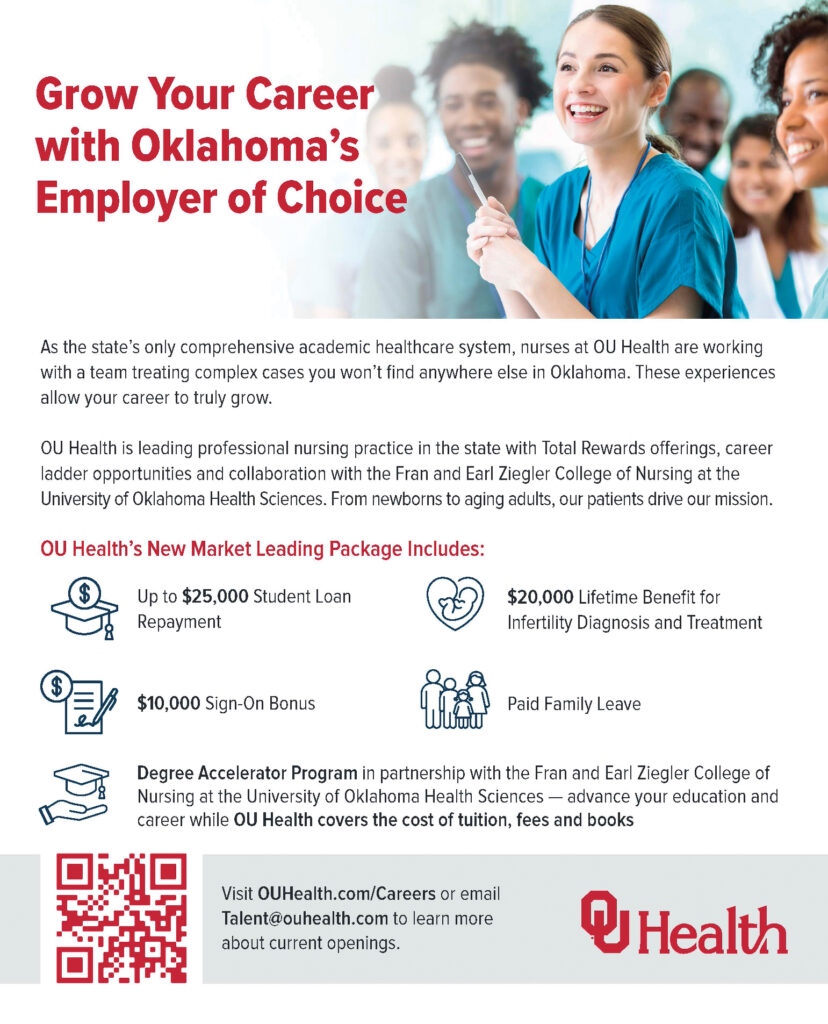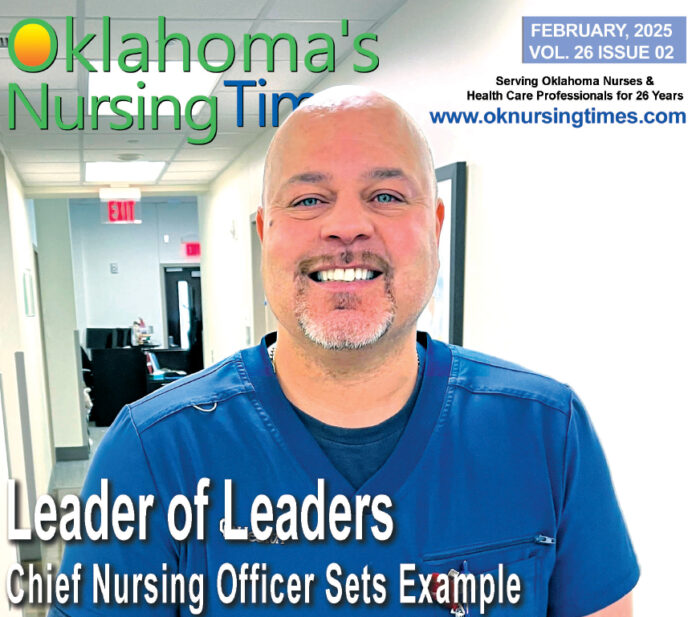David A. Allen, RN
From Military Major to Influential Nurse Leader: Inspiring the Next Generation of Nurses
story and photo by James Coburn, Staff Writer

Inspiring leadership means role modeling the leadership one expects, said David A. Allen, RN, chief nursing officer at OU Health University of Oklahoma Medical Center.
“My talent is leading people. My talent is galvanizing people and influencing individuals to do stuff they didn’t think they could do,” Allen said.
In his more than 90 days of leadership there, Allen is responsible for all the clinical operations along with the chief medical officer on two campuses with 550 patients. More than 1600 staff members report directly to him through his team members.
“I have the largest span of control in the hospital,” Allen said.
He was first in his family to earn a degree and wanted to set an example for his children. Allen entered the military, five years in the United States Air Force and 17 years in the US Army before retiring as a Major.
He earned his Doctor of Nursing Practice at the University of Alabama. His Bachelor of Science in Nursing degree was earned at The University of Nebraska Medical Center. In 2015, Allen earned advanced practice nurse credentials at The University of Texas Health Sciences Center in San Antonio. He will speak with nurses about the differences between them.
“I couldn’t be a chief nurse just because I’ve got a doctorate degree. The RN behind my name is what allows me to be the chief nurse,” he said. “The academic preparation may help me get the job.”
Allen is in the process of reintroducing the concept of shared governance with the nursing staff. The last time he was a bedside nurse was 2002. But he remains trained.
“And so, where shared governance comes in is I don’t want to push down because I haven’t technically done their job in years. So, I want those individuals to tell me what they need from a shared governance standpoint, what they need to be successful on the floor,” Allen emphasized.
Nurses join OU Health because of the quality of the bedside nurses working there, he said. They know that nurses have a degree of autonomous practice.
“So, really what you want to do is give them parameters that they can function in,” Allen noted.
There isn’t too much he hasn’t done as a nurse. He is a critical care nurse by training. And Allen has overseen every aspect of nursing during his 25 years of hospital service.
“They’ve got to have professionalism. And then there’s got to be selfless service and compassion,” Allen said. “I think what you see in the nursing field is an understanding that this is more than a job – it’s professionalism,” he said. “The difference is, we get to add to the body of the profession by writing articles, by sharing all of our experiences. We need to grow that profession and be better.”
Unsuccessful hospitals have folks that come for a job. They clock in and clock out. They won’t do anything different above and beyond what they’re supposed to do, he continued.
“If we’re asking our staff to do something, we must do something,” he explained. “If we ask our staff to trust a certain way, we can’t come in and not trust a certain way,” Allen said.
Leadership means being transparent. The staff needs to know leaders are genuine in what they do, Allen said. He often tells patients and the nursing staff about being a retired Army officer.
“We just tell it like it is,” he will say. “Folks pick up on that, and when they know that you care about them and you’re genuine, you build that foundation and relationship.”
He influences the next generation of nurses, not that they need to be like Dave Allen. He guides them to reach their full potential.
Recently, he met a patient who had been hospitalized for 50-60 days. It was his birthday. The staff got with dietary and made sure the gentleman had his favorite meal and had cake.
“There’s an automatic thought that when you come to the hospital, there’s things we’re going to do that you shouldn’t have to worry about,” he said.
Allen said it’s OU Health University of Oklahoma Medical Center’s job to do things exceeding a patient’s expectations. Little things in life like getting them a cake or asking what they’d like to do when not hospitalized, brings a moment of peace, and takes their mind away from the stress of being sick.
Allen enjoys cooking when at home. He likes to golf and spend time with his three grandchildren.














